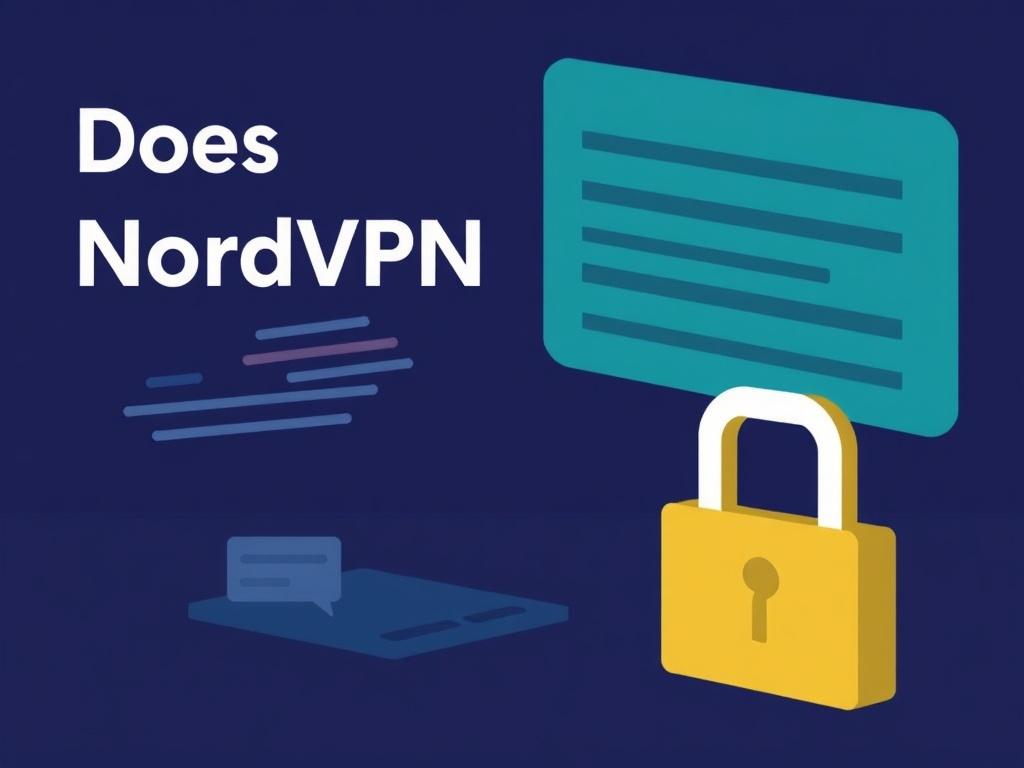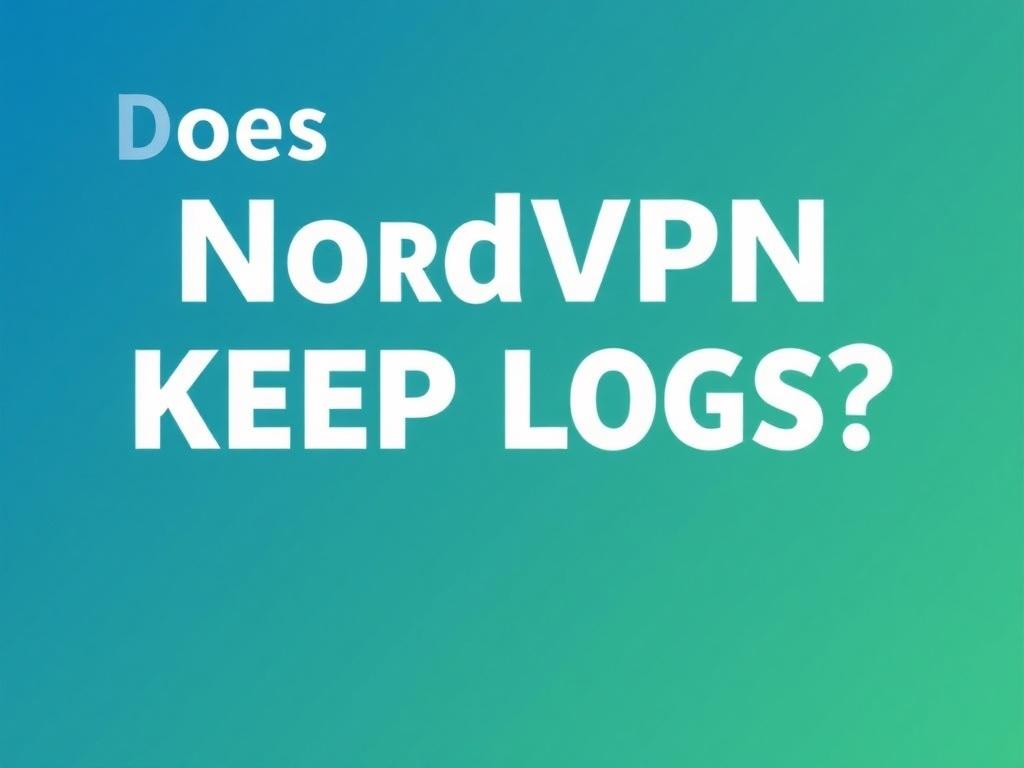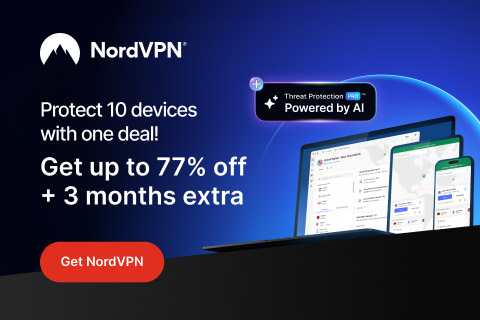Stay Private. Stay Secure. Stay Free.
Trusted by millions worldwide – protect your online life with #1 VPN
- ⚡ Blazing-fast speed on every server
- 🔒 Military-grade encryption & protection
- 🌍 Access content globally without limits
- 📱 Up to 10 devices with one account
If you’ve ever wondered about the behind-the-scenes truth of using a VPN, you’re not alone. In an age where every online move can feel traceable, the question “does nordvpn log” looms large for many readers who want to protect their privacy without losing convenience. The marketing promises of a private tunnel to the internet are compelling, but privacy-minded users want to know the specifics: what data is collected, how it is stored, who can access it, and how long it remains available. This article takes a careful, reader-friendly look at nordvpn no logs policy, nordvpn logging policy, and the practical implications for everyday use. We’ll walk through what logging means in plain terms, what NordVPN says about its operations, what independent audits have shown, and what you can do to assess privacy claims for yourself. Throughout, you’ll see the exact keyword phrases used in context so you can compare labels, promises, and practice with confidence. Does nordvpn log? The short answer is nuanced, and the longer answer relies on definitions, auditing, and how you use the service.
Understanding Logging: What It Is and Why It Matters

Logging, in the context of virtual private networks, refers to records that a service keeps about user connections, activities, or both. It can include things like timestamps of when you connect or disconnect, the IP addresses you use, the websites you visit, the amount of data transferred, and other metadata. A VPN that keeps extensive logs could, in theory, reconstruct a user’s online behavior, even if the traffic itself is encrypted. For privacy-conscious users, the distinction between connection logs (when and where you connected) and usage logs (what you did once connected) matters because it affects how hard it is for external parties to associate online activity with a person. The core idea behind most “no logs” policies is to minimize or eliminate data that could be used to identify someone’s online actions. But there are different models and exceptions to consider.
Here are a few practical points to keep in mind about logging as you evaluate a service like NordVPN:
– Connection data vs. usage data: Some providers retain very limited connection data for operational purposes (e.g., to prevent abuse or manage the service) but claim not to keep details about what you do online or which sites you visit.
– Metadata and privacy risk: Even seemingly harmless metadata can, when aggregated, reveal patterns about who you are, when you’re online, and what you’re doing online.
– Jurisdiction and data requests: The laws of the country where a VPN operates can influence what data, if any, can be demanded or retained, so the legal framework matters just as much as the technical policy.
With this framework in mind, you can approach nordvpn no logs policy and nordvpn logging policy with a clearer lens. The rest of this article digs into what NordVPN says, what independent audits have shown, and what that means for you as a user.
The Public Stance: nordvpn no logs policy
NordVPN has built its reputation around a strong privacy claim: that it does not log users’ online activities. The phrase nordvpn no logs policy is central to its branding and marketing, and it appears prominently in product pages, press materials, and the privacy policy. The core of the policy is a commitment to not store or log traffic data, website visits, or IP addresses tied to a user’s session. In practice, that means NordVPN emphasizes that your browsing history, the content of your traffic, and your habitual online patterns should not be tied to you by the VPN provider.
This policy does not exist in a vacuum. It is part of a broader privacy framework that includes technical measures designed to minimize data exposure and protect user anonymity. Their stated approach also reflects a belief that privacy protection must be verifiable, not only declared. As a result, the company has pursued independent security audits and improvements in architecture to support its claims. But statements can only carry so much weight; independent evaluation and transparency about data handling are crucial to building trust.
In everyday usage terms, the idea behind nordvpn no logs policy is straightforward: NordVPN wants external observers, including potential advertisers or malicious actors, to see only that you connected to their service, not what you did or where you went once you were connected. The policy is ambitious in its scope, and readers should still look at the policy’s specifics to understand what is included and what is excluded. For example, some services still collect aggregate or operational data that helps run the network or prevent abuse, but they separate that from sensitive usage data. The balance between operational necessity and privacy is where the “no logs” ideal meets real-world implementation.
NordVPN Logging Policy: The Fine Print
The phrase nordvpn logging policy is a prompt to examine exactly what data, if any, NordVPN stores, and under what circumstances. In an ideal world, a no-logs policy would mean no logs are kept at all. In reality, most privacy-savvy providers describe a minimal logging stance that focuses on essential operational data while explicitly avoiding user activity logs. NordVPN’s public statements, privacy policy, and system architecture provide a snapshot of how they interpret this balance.
Key elements you’ll frequently encounter when reading nordvpn logging policy language include:
– Data Minimization: The company states that it collects only what is necessary to provide the service, maintain security, and comply with legal obligations.
– No User Activity Logs: The policy commonly asserts that browsing history, traffic, and DNS queries are not logged.
– Connection Data for Security and Reliability: Some connection-level data may be retained temporarily to detect misuse, safeguard the network, and optimize performance, but it should not be linked to a person’s identity.
– Payment Information and Core Account Data: Personal information required to create and manage an account (e.g., payment details, email, account credentials) may be stored, but this is separate from web activity data.
– Auditable Claims: Independent audits are presented as evidence that the stated no-logs commitments are more than marketing fluff.
Consider this: while the nordvpn logging policy emphasizes privacy, it also acknowledges that the company may collect certain data necessary to operate and secure the service. The trick for users is to separate data used for service delivery (which may be stored for a short time) from data about what you do online (which they claim not to log). The nuance is essential: you may not be logging your sites or pages you visit, but some timestamp or server information may be used to connect you to a server and manage traffic. Knowing exactly what is logged and what isn’t helps you gauge the true privacy risk in practice.
Independent Audits, Operational Reality, and Real-World Evidence
One of the strongest ways to evaluate the credibility of a no-logs claim is to examine independent assessments. NordVPN has publicized several steps in this direction, including third-party audits and architectural choices designed to bolster privacy and security. The most notable milestone historically has been an independent audit of the no-logs policy, performed by a reputable firm, with findings that supported the claim that user activity was not being logged in a way that could be used to identify individuals. Independent audits matter because they reduce the friction of trust by providing objective evidence that a claim is not merely marketing rhetoric.
In addition to audits, NordVPN has taken technical steps to reduce the amount of data retained. A prominent feature is the shift to RAM-only servers in many of its locations. RAM-only servers do not retain data after a reboot, which makes certain types of data leakage or retroactive reconstruction of activity extremely difficult. This architectural decision aligns with privacy-focused goals and complements the no-logs policy by reducing the potential data footprint in the event of a breach or legal request.
Here’s a practical summary of how audits and architecture intersect with the policy:
– Audits provide external validation: When a firm independent of NordVPN reviews the no-logs policy and its implementation, users gain confidence that the policy is not only stated but realized.
– RAM-only servers limit data persistence: Because data does not persist between reboots, the risk of data remnants being recovered after a server outage is minimized.
– Legal jurisdictions matter: Even with no-logs commitments, the jurisdiction can influence data requests and compelled data retention. Audits often address these questions and clarify what information could potentially be handed over under specific laws.
– Real-world incidents shape trust: While NordVPN’s audits offer strong signals, users should remain attentive to new developments, vulnerabilities, or changes in policy that could alter the data handling posture.
If you’re weighing whether nordvpn no logs policy is trustworthy, these independent proofs, combined with concrete architectural choices like RAM-only servers, can provide a more tangible basis for evaluation than marketing language alone. However, as with any privacy claim, continuous vigilance and re-evaluation are prudent as services evolve and new audit findings emerge.
Practical Implications for Users: What This Means for Everyday Privacy
Understanding the policy is one thing; translating it into practical steps is another. For most users, privacy is not just about what a provider claims; it’s also about how you configure and use the service. Here are several practical considerations to help you leverage nordvpn no logs policy and nordvpn logging policy in real life:
– Use the service consistently with strong authentication: Enable two-factor authentication (2FA) where possible to reduce the risk of unauthorized access to your account, which could undermine privacy protections regardless of the underlying data-retention posture.
– Prefer official app versions and keep them updated: The client software is the most visible interface through which data is logged or not logged, including diagnostic or telemetry data that may be sent to the provider. Regular updates ensure you benefit from the latest privacy protections and bug fixes.
– Be mindful of what you log yourself: In some cases, you may still generate logs on your device (browsing history, cookies, or local app data). A privacy-first approach includes managing device-level privacy, not just trusting the VPN to handle everything.
– Understand the limits of the policy in your jurisdiction: Some regions have mandatory data retention laws or government-surveillance provisions that could influence what a provider can do, even under a no-logs policy. Knowing the local legal context helps set realistic expectations.
– Evaluate the total privacy picture, not just the logs claim: A no-logs policy is a piece of a larger privacy equation that includes encryption standards, DNS handling, kill-switch behavior, leaks protection, and how the service handles third-party data requests.
To make this more concrete, the following table outlines common privacy questions and the typical stance you’ll encounter in the nordvpn policy landscape. It’s designed to help you compare claims with practice at a glance.
| Privacy Question | NordVPN Stance | What It Means in Practice |
|---|---|---|
| Does a user’s activity get logged? | Does not log user activity; claims no usage logs. | In theory, websites visited and traffic content aren’t stored by the provider; you still rely on the policy, audits, and technical measures for trust. |
| Are connection times and server choices stored? | Limited connection metadata may be kept for operational reasons. | Helpful for service reliability and abuse prevention, but should be unlinkable to an individual’s activity in a privacy-focused architecture. |
| Is RAM-only server technology used? | Yes, in many locations, to minimize data persistence. | Reduces the risk of data remnants and strengthens the no-logs posture from a practical standpoint. |
| Are payment and account data logged? | Account data and payments are separate from online activity data. | Helps protect identity even if a service is compelled to disclose data by law. |
| Have independent audits validated the policy? | Public audits have supported the not-logging claim. | Audits increase trust, but ongoing transparency and new audits matter as services evolve. |
Common Questions and Honest Answers

What follows is a practical FAQ, using the exact keyword phrases in a natural, reader-friendly way. If you’re scanning for direct answers, these entries are designed to be straightforward while still being precise.
– does nordvpn log: The core question. The public stance is that NordVPN does not log user activity. The truth involves understanding what “log” means in their policy and how operational data is handled. It’s not a free-floating guarantee—there are caveats, and your interpretation should consider audits, architecture, and jurisdiction.
– nordvpn no logs policy: This is the banner headline that appears in marketing materials and privacy documentation. It signals a commitment to privacy, but readers should examine what is counted as a log and what is not. The no-logs policy is best understood alongside the data types NordVPN says it does and does not collect.
– nordvpn logging policy: This phrase points to the document that outlines what data is collected, stored, and retained, and under what conditions. It is worth reading the privacy policy in full and noting any references to operational data, telemetry, or anonymized analytics that might still exist.
– is nordvpn log free: People sometimes interpret the phrase as asking whether NordVPN is free of logging, or whether the service itself offers a free plan without logs. The accurate framing is that NordVPN is a paid service, and the privacy posture (whether logs are kept or not) is a separate issue from pricing. The question “is nordvpn log free” often arises from confusion about free trial options or how logging claims translate to free access; in practice, NordVPN’s policy speaks to privacy, not price.
– nordvpn privacy no log: This variant phrasing emphasizes the privacy promise around no logs. It’s a compact way to refer to the same core policy, and it’s useful when comparing privacy labels across providers. The emphasis here is on privacy outcomes rather than marketing language alone.
If you want a quick personal takeaway: the combination of nordvpn no logs policy, nordvpn logging policy, independent audits, and a recent emphasis on RAM-only servers creates a multi-layered privacy posture. It’s not a silver bullet, but many users find the overall approach credible, especially when combined with careful practice and ongoing scrutiny of new audits and technical updates.
How to Read and Compare Privacy Claims Across Providers
If you’re evaluating NordVPN against other services, it helps to adopt a consistent framework. Here’s a simple checklist you can use:
– Public policy text: Read the privacy policy and any no-logs policy language carefully. Look for explicit mentions of logging of traffic data, DNS queries, IP addresses, timestamps, and server names.
– Audits and certifications: Check whether the provider has undergone independent audits, who performed them, and what the scope was. How were the findings published, and did the provider address any gaps identified?
– Technical architecture: Are RAM-only servers used? If so, how often are servers refreshed, and what safeguards exist for preventing data remnants?
– Jurisdiction: Where is the company incorporated, and under which country’s laws does it operate? Are there data retention or government-access requirements that could compel data disclosure?
– Operational data: What data is retained for network management, security, and abuse prevention? Is this data linked to user identities, or is it anonymized and separable from activity data?
– Transparency and updates: Does the provider publish regular transparency reports or security advisories? Do they release details about data requests and responses?
Using this framework, you can compare nordvpn no logs policy and related claims with other providers’ approaches. The goal is to determine whether a given policy paper aligns with the service you expect in daily usage, and whether the technical and legal safeguards meet your privacy threshold.
The Important Realities Behind Privacy Claims
No privacy policy exists in a vacuum. It sits at the intersection of technology, business choices, legal jurisdiction, and user behavior. NordVPN’s approach to privacy—emphasizing a no-logs stance, coupling it with operational minimal data collection, and reinforcing it with RAM-only servers and independent audits—aims to deliver a credible privacy experience. But several realities deserve emphasis:
– Privacy is a spectrum: Some data might be available to NordVPN under specific conditions (for example, to manage a service, prevent abuse, or comply with law). The absence of traditional usage logs does not automatically translate to perfect anonymity; it is about reducing the most sensitive data while preserving essential service functionality.
– Verification matters: Claims alone aren’t enough. Audits and the reproducibility of findings are essential. If an audit reveals a vulnerability or a gap, how quickly the provider addresses it matters as much as the initial conclusions.
– User behavior matters too: Your own practices—whether you disable telemetry, clear cookies, or avoid logging into sensitive accounts through the VPN—impact your privacy environment. The ISP or VPN may have no logs, but other traces could remain elsewhere on your device or on the internet at large.
– No system is perfect: Even with strong privacy features, users should stay vigilant about cybersecurity best practices, such as enabling strong passwords, using multi-factor authentication, and keeping all software up to date.
With these truths in mind, you can assess how much you rely on a brand’s privacy claims and how you complement them with day-to-day privacy hygiene.
Conclusion
In the grand scheme of online privacy, the question does nordvpn log is not a single yes-or-no question but a layered inquiry that touches on policy, practice, and real-world safeguards. NordVPN’s no logs policy, coupled with a stated nordvpn privacy no log posture, forms a coherent privacy narrative that many users find persuasive, especially when read alongside the nordvpn logging policy and independent audits. The introduction of RAM-only servers adds a practical dimension to the theoretical framework, reducing the likelihood that residual data sits on servers after reboot. Still, privacy remains a moving target. Jurisdiction, regulatory requirements, and evolving technical threats all shape how a no-logs commitment translates into actual protection over time. For readers looking to understand and compare, the best approach is to combine careful reading of the policy with attention to independent audits, architectural choices, and ongoing transparency. If you’re seeking a privacy posture that aligns with contemporary expectations, NordVPN’s public-facing claims provide a solid foundation, but continued diligence—through audits, updates, and mindful usage—will help you determine how well the service aligns with your personal privacy goals. In practice, the more you engage with the policy, the more equipped you’ll be to assess whether, in your own online life, nordvpn log is truly a question you can answer with confidence.

